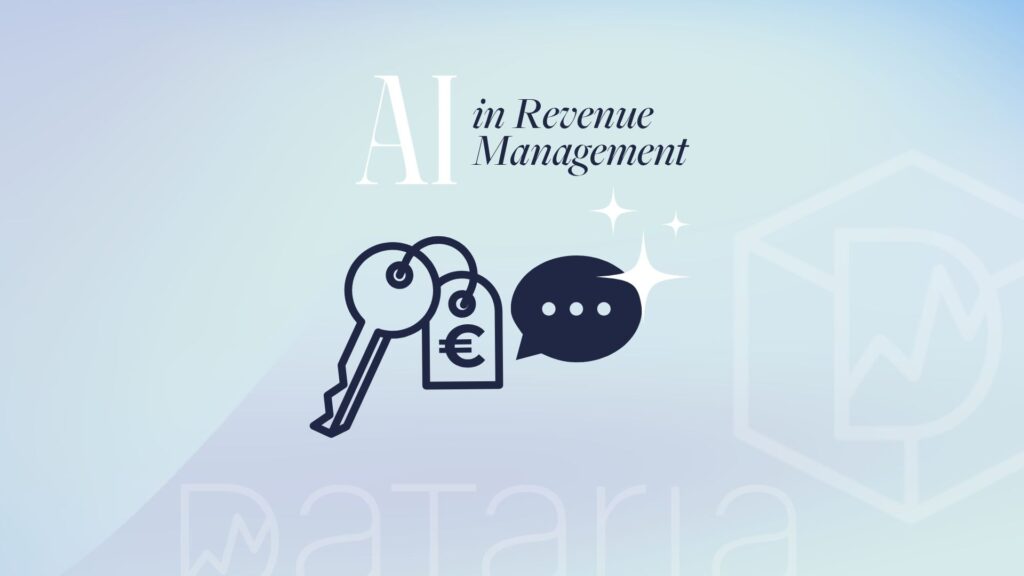Artificial intelligence is trending. PMSs, Revenue Management Systems, and Business Intelligence tools for hotels are already integrating it. They automate, predict, recommend. It all sounds promising.
But here’s the real question:
Would you really trust AI to guide key decisions in your hotel?
Setting rates, opening or closing channels, segmenting guests, prioritising offers… none of that is trivial. It takes judgement, experience, and a deep understanding of context. Can AI truly grasp all that?
What AI gets right (and what it doesn’t)
When properly trained, AI can detect hidden patterns in data, anticipate behaviours, and suggest actions. It can help you spot things you might otherwise miss.
But it can also be wrong. Because data is never perfect, and the market doesn’t always behave logically.
That’s why many hoteliers aren’t looking for an AI that makes decisions for them — they want optional intelligence: something that strengthens their judgement, not replaces it.
AI, yes — but with human control
The question isn’t whether to use AI. It’s how to use it:
Keep decision-making in human hands — no blind automation
- The question isn’t whether to use AI. It’s how to use it:
- Make sure recommendations are clear and explainable
- Ensure the team understands the reasoning behind each suggestion
- Keep decision-making in human hands — no blind automation
- Use AI to model projections and hypothetical scenarios to test against real-world decisions
- Understand the data behind each output to know when AI insights are truly useful
A human-centred approach to technology
In an increasingly demanding sector, handing everything over to algorithms might seem like the easiest path — but it’s not always the wisest. As we explored in our recent article “Drowning in Data” on Smart Travel News, there’s a fine line between support and saturation when it comes to tech trends.
The real challenge isn’t adding more data or more AI. It’s keeping decisions grounded in human understanding — with context, critical thinking, and perspective.


